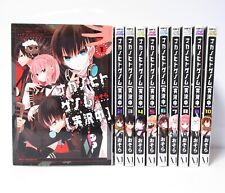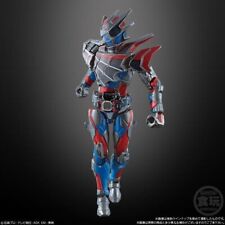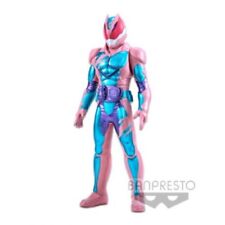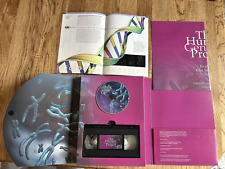The following is translation of an interview conducted via e-mail between Richard Honeywood, a senior Localization Director at Square Enix, and a South American magazine. The interview focuses on his work in Final Fantasy XI.
Q. Tell a little about yourself: bios, background, previous works, when you joined Square Enix and such.
A. Well...I'm originally from Australia, but studied as an exchange student at both a Japanese high school and university. After graduation, I worked two years as a programmer at a Japanese arcade game manufacturer, followed by another two years at a subsidiary of Nintendo, once again, as a game programmer.
I applied to Square in 1997 as a programmer as well, but just as I entered, FFVII was being completed and Square wanted to build a localization department inside the Tokyo HQ. So I became a "localization coordinator/translator/engineer"...basically doing whatever was needed at the time to localize our games.
At first, it was just another coordinator and myself handling the foriegn versions. Over the last seven years we have become a fully-fledged localization department with over thirty internal members...not to mention our offices in the US and UK as well as our pool of external staff!
Q. When did you get involved with the FFXI project?
A. From day one. The Product Development Division-3 team and I were just finishing off the North American version of Chrono Cross when talk of making an online version of Final Fantasy first came up. As I had also worked with Division-3 on Xenogears before that as well, it seemed only natural I help them out on their next project...besides, it saved me moving booths! *laugh*
The first few months, the dev team did research by playing other online games. During that time I worked on other Square games, such as "The Bouncer"...while helping Division-3 staff play the online games in English.
When we sat down to plan the game, it was decided we'd make the English and Japanese versions simultaneously so both language's players can play together on the same servers. So I joined in all the discussions and offered creative advice while ensuring everything would techinically work between Japan and overseas.
Q. What is your role in FFXI?
A. As the only localization staff on the project for the first year or two, I served as localization director, translator, and programmer. I laid the technical (programming support) and creative foundations (naming styles and characterization) for translation to begin formally. I was later joined by three experienced translators fresh from FFX, each taking a country and other game sections: Aziz Hinoshita (Bastok, Mhaura, and Items), Alex Smith (San d'Oria), and Brody Phillips (Jeuno and Selbina). I took Windurst and the system messages...so I'm responsible for all those cute-sounding Tarutaru! *laugh* (Overall, I did about 40% of the translation of the initial FFXI game back then... As you can see, Tarutaru talk a lot!)
After a year when we had the translation current with the Japanese text, these translators moved on to other projects and were replaced by Koji Fox and Phillip Bright, who not only keep the monthly updates simultaneously translated, but also translated all of the Rise of the Zilart expansion sections.
As localization director, I am also responsible for the budget and scheduling of the game, ensuring QA and all other communications between the dev team and overseas go smoothly. Now that things have settled down a lot, I manage the daily workings and monthly additions to the game, with the help of my Localization Assistant, Seikoh Hokama.
Q. You worked several times with director Hiromichi Tanaka, and made important strides in your previous works (notably, the Auto-Accent Generator from Chrono Cross). How does this relationship and know-how apply in such a different project?
A. For seven years now it has been my priviledge to work with Mr Tanaka and his team, and we have built up a lot of trust. He knows he can leave the foriegn versions of his games in my care without worrying what might happen to it. At the same time, he's allowed me a lot of freedom for improving the games for the foriegn versions by adding features that weren't in the original Japanese, but are needed for other languages.
The Chrono Cross auto-accent creation routine was one such task. (Most people who play the English version don't realize it is the same text being auto-converted in real time to sound like 40 or so different characters' accents and speech impediments.) Designing the system and having Japanese programmers implement it into their source code was a real challenge...not to mention having the QA department test every line for every possible variation!?! *laugh*
For FFXI, we are doing a lot of hidden technical stuff that people shouldn't notice if we do it well enough. One new feature is singular/plural item names. Remember the old games that just said "Got 2 x potion!"? Well FFXI has changed all that. Knowing people would have to communicate with each other compelled us to make the language as natural as possible to avoid misunderstandings. Thus I proposed a system where item names are printed correctly in both singular and plural form, as well as adding the right articles. (e.g. "Recieved an ax.", "Received 2 axes.", "Obtained a sword.", Dropped the sword." etc) It sounds simple, but with thousands of items names it became a mammoth undertaking. Having the poor Japanese programmer wrap his mind around this and other English grammar issues was a fun adventure, but it came out really well.
Also, I programmed the "Namingway"--the auto-name creation algorith in the character creation screen. Seeing as I helped the Japanese dev team with the naming standards for the different races (as we use the English names in the Japanese version too), and still being a wanna-be programmer, Mr Tanaka asked me to try to automate the system to create name suggestions for the player. Once again, not a very obvious feature, but tricky nonetheless.
Finally, the most obvious one is the auto-translation feature. But we'll get to that later...
Q. What were your main challenges working on FFXI?
The fact that it required simultaneous translation and the fact that it was cross-platform.
It was like working on four versions of the same game at once (Japanese and English on the PS2 and PC).
Trying to keep yourself and your fellow staff motivated to reach the monthly deadline over the years too has stretched our endurance. It is clearly the biggest undertaking Square Enix has ever done, and I sometimes look back and wonder how it all went so smoothly. It's a real credit to the passion of the Japanese dev team, my fellow localization staff here, and the staff in the US office. We just tackled each little problem as it came up without letting the bigger picture get clouded.
Q. What is the volume of text compared to the average RPG?
Huge. When the PC version was released last year, if you took just the text out of the game, the original FFXI release (including the early parts of Rise of the Zilart) had a total of 1,224,945 Japanese letters (approx. 2.4 MB) and the English had 536,920 words (approx. 2.6 MB).
By comparison, FFX-2 had 406,493 Japanese letters (812,986 bytes) and the English version had 184,024 words (901,567 bytes).
To put those figures into a size people in the Americas can readily understand, the English version of FFXI was over 2/3rds the size of the bible back then, and we've added another half-year's worth of event data since! Soon, the text will literally be of "biblical proportions"!
Q. Other MMORPGs don't focus on story, but FFXI is said to have a strong story element. Can you tell us a little about this feature?
A. The games in the Final Fantasy series are famous for their intriguing storylines, and FFXI is no different. Presenting a story in an MMORPG--when you are accompanied by other players who can be at different stages of the plot--was a challenge. Our dev team came up with a system of "event scenes" that you view. Depending on the event, you may view these as if your character is participating in the scene alone, or, if the other characters are doing the same quest or mission and are at the same stage as you, may even be viewed together with other members of your party. This way, plot elements are presented to you in a logical order and, if you get taken by the story, makes you want to play to find out what happens next.
Q. Was FFXI was a cross-platform, cross-country game since the beginning? Could you elaborate on the Auto-Translate Function for us? What are player reactions?
A. We planned to have Japanese and English-speaking players journey together in the same world, no matter if they were playing on a PC or the PS2.
But we knew we were going to have to go further.
We made it part of a typing shortcut system, so you only type the first part of the word and press the TAB key to complete it. If it is in the phrase list, that word will be shown in Japanese on a Japanese machine, or English on an English machine. (As a side point, the TAB key was chosen because it had the <- -> arrows on it and looked like a nice symbol for communication between languages. *laugh*) The Japanese players were already using the TAB key as a shortcut to type words in Japanese for a year before the English version was released. (They didn't realize that all that time they were practicing using our auto-translate feature!) The next step was familiarizing the US players with the system. Most seem to have gotten the hang of it, and you'll see people using the feature all the time to communicate with both Japanese and English players using the same piece of text. It's not perfect, but it helps people get by if they don't speak each other's language.
Some players have even come to use the auto-translate feature in the most creative ways...such as using it to get around our chat filter to say rude and perverted things to other players! *laugh* This is something we didn't expect, but is certainly a sign people have mastered the system! : )
Q. New patches are released which add content simultaneously in US and Japan. How is the challenge to localize everything on schedule? Do the Japanese staff have to hold things up, or is everything developed simultaneously?
A. Everything is developed simultaneously. We check the Japanese text every day to see what the planners have added, then translate it straight away. There is a lot of rewriting, and sometimes our efforts seem a little wasted, but we always have the English ready in time for each patch. Koji and Phil are amazing at keeping on top of everything. Sometimes they finish things before they are officially asked to do them!
Also, we still help name all the new things added to the game for the Japanese version as well, and add our ideas for events too. So we know what's coming...which helps us keep the schedule. The only problem is the overly keen Japanese staff try to squeeze as much as they can into each patch, so you'll have ten planners still writing text up until the deadline and forgetting to give us time to translate it! *laugh* But we always manage to get by without major catastophes happening.
Q. What is the typical workflow between Square Enix USA FFXI staff and Square Enix Product Development Division 3 office?
A. Mainly, the US office handles the QA and marketing of our games. But for FFXI, the US office also helped us find Game Masters and work out the technical and legal issues of releasing an online game in North America.
QA for FFXI has been on-going for two years now, and we test the English version in both countries. The Tokyo QA staff looks mainly for functionality issues, while the L.A. staff looks mainly for English-related issues. My assistant Seikoh and I have to keep the US game testers up-to-date with what has been added to the game so they know what to check. They are pretty good at it and often find the stuff before we officially tell them. Sometimes they even find stuff we didn't know was in the game! *laugh*
Each evening they report their bugs to us, and we fix them here in Tokyo overnight. That way, the next morning when they come to work, the issue is (hopefully) fixed. We use the time difference to our advantage. On top of that, each week we have several meetings for localization and QA for both FFXI and PlayOnline where the L.A.-based staff and Tokyo-based staff discuss matters in detail.
Q. There are some features that didn't see the light of the day as of yet (notably, PVP and the Wedding System). What are the issues that prevent us from enjoying this features? When will we be able to use them?
A. We are working on releasing both the wedding service and the PvP system (as well as many other additions) in the near future. Weddings have been carried out for months now in the Japanese version. We want the US players to settle into the game first before we offer the wedding service. (After all, it takes time to build a relationship up to the point where you get married. We don't want to rush the players into marrying too soon! *laugh*) Either way, we expect to offer it soon after the PS2 release settles down.
As for PvP, it has always been a locked feature in the game. Mr Tanaka and the planners didn't want to unlock it until there was a clear reason for it that fits in with the feel of the world, as well as the storyline. We have several versions of PvP being planned, and we expect to release one of these in the near future. We don't want it to be just the meaningless killing of each other for the sake of violence. Keep an eye on our updates, as we are already dropping hints about it now.
Q. Can we find you in Vana'diel?
A. Of course. All the dev team staff log in here on the public servers with their own characters. We aren't allowed to say which characters we are, but you'ld be suprised by how many of us play each day. Without realizing it, you could even find yourself playing against our producers, Mr Tanaka and Mr Ishii, or even the famous heads of other development teams!
As for me, I often log on while I work and spend hours every day fishing in some remote nook of Vana'diel. The planner in charge of the fishing system sits next to me, so I shout at him every time my rod breaks. *laugh* At different times, I log in from home and pretend to be a Japanese player or an American player just to see how people are reacting to the game and each other. I even have a group of friends in one linkshell who discuss personal problems, such as romance and family hassles...as we merrily go about killing orcs and goblins together! *laugh*
Q. FFXI seems like a never-ending project. Until when do you intend to keep involved with the game? Do you have new plans? Working on a new game?
A. So long as you, the players, keep playing FFXI, we're delighted to keep adding new gameplay elements and story chapters to it. We have many months' worth of storyline planned out, ready to be added little by little with each patch. So the dev team as a whole is keeping busy creating new content all the time...so much so that we don't have time to be working on any other games for now.
Personally, as a Localization Director, I also have the responsibility of training new staff on other projects, as well as helping on projects that haven't formally been assigned localization staff yet. So while doing FFXI, I was often working on other titles such as "Final Fantasy Crystal Chronicles" and "Sword of Mana". It's hard to work on more than one project at once, but it has to be done to train new people, and it gives me a bit of variety, so I don't mind too much.
Q. Where do you see Final Fantasy XI in, say, four years from now?
A. We are suprised by how successful it has already been in both Japan and North America. Of course, we would love to expand it into other languages and into more countries, and as a company we always are looking into expanding our markets. But on top of the simultaneous translation problem and the issue of having multi-lingual GMs on call to police the game 24-7, there are many legal and technical problems that have to be overcome first.
Even if we don't expand FFXI globally that way, we'd be happy just to keep expanding the content of the Japanese and English versions and seeing how far our players will journey with us.
Q. Thank you very much for your precious time and congratulations for your excellent work!
A. Thank you. It was our pleasure to chat with you. Hope to see you online one day!
Banpresto Tengen Toppa Gurren Lagann Lordgenome Lord Genome Figure Ichiban Kuji $40.00
Missions are bigger tasks you do for your country and are the main device used to tell the story. Each mission gives you the next part of the story from the perspective of your nation. To hear the entire story from all perspectives, you'd need to do all the missions for each country...or you could just talk to people who have done those missions and find out what's happening from their country's view. One of the goals was to have people communicate with each other, and even presenting the story in this way encourages people to talk with one another to find out the whole picture.
From day one, Mr Iwao (the Japanese planner in charge of naming everything in the game) and I set out to name every character, spell, skill, and place name in English so it sounded cool to both Japanese and English-speaking players. So the Japanese players were already becoming familiar with using English words in the Japanese game.
We experimented with a series of attempts at auto-translation, but memory and speed requirements limited us. Plus we realized the more complex a system we tried to create, the harder it was for players to use and often didn't give any better results than a simplier system. Eventually we settled on a simple "phrase book." My thinking is that when you travel to a foriegn country, you look up simple words and combine them into easy sentences to get your meaning accross. If this is what most people do in the real world, then reasonably we can automate it in our online world.

Naka no Hito Genome The Ones Within Vol.1-10 Latest full set Comics Osora Manga
$76.50
Nakanohito Genome Vol.1-10 Complete Comics Set Japanese Ver Manga
$55.00
Metal Gear Solid Genome Soldier female anime girl airsoft morale military patch
$9.99
BANDAI SO-DO KAMEN RIDER REVICE BY 02 ACTION FIGURE- DEMONS SPIDER GENOME A & B
$19.99
BanPresto - Kamen Rider: Soft Vinyl Statue - Revice Rex Genome, *NEW*
$19.95
The Human Genome Project Educational Kit from NIH (1980s) VHS, CD, booklet
$9.99
BANDAI SO-DO KAMEN RIDER REVICE BY 02 ACTION FIGURE- REVI EAGLE GENOME A & B SET
$19.99
Nakanohito Genome Kaikoku Pomegranate Bonus Keychain Ackey
$122.02
Love Genome/Heaven Hell 2015 Cd Rap Duo
$56.12
 Characters
Characters Places
Places Stories
Stories Species
Species Organizations
Organizations Glossary
Glossary Transportation
Transportation Monsters
Monsters Jobs
Jobs Summons
Summons Items
Items Magic/Skills
Magic/Skills Weapon Types
Weapon Types In-Crossovers
In-Crossovers Ex-Crossovers
Ex-Crossovers Release Dates
Release Dates Name Origins
Name Origins Famous Moments
Famous Moments Music Database
Music Database Features
Features Game Help
Game Help Game Evolution
Game Evolution Square Art
Square Art Fan Flash
Fan Flash Final Fantasy Forums
Final Fantasy Forums Updates
Updates Site Info
Site Info Feedback
Feedback Full Index
Full Index Links
Links Staff
Staff








